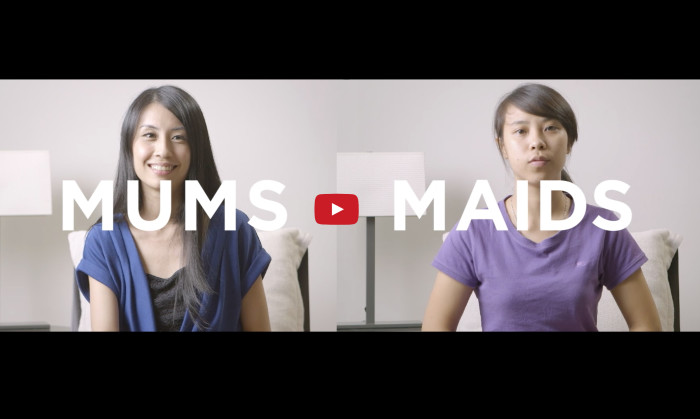
Is your maid closer to your child than you are?
O&M’s provocative campaign asks
The campaign calls attention to the plight of foreign domestic workers (FDWs) or ‘maids’ that work for months or years on end with no rest days. The campaign was launched in the run up to International Workers’ Day, or Labour Day, on 1 May.
According to statistics from the Humanitarian Organisation for Migration Economics (HOME), it is estimated that approximately 40% of Singapore’s 222,500 domestic workers do not have a weekly day off, despite a law coming into effect in January 2013 making it mandatory.
One in five households in Singapore today employ a domestic worker, primarily those with children or elderly parents. A problem arises when employers do not allow their domestic workers to take a rest day each week or informally ‘buy out’ their legally required day off by promising them payment in-lieu.
With the majority of Singapore’s domestic workers being far away from their families in the Philippines, Indonesia and Myanmar, working endlessly with no breaks for personal time or rest often leads to homesickness and mental health problems such as depression.
This campaign centers around the idea that what may help parents to bond with their children is also a fundamental worker’s right – a weekly day off.
To communicate this message, O&M created a short film called “Mums & Maids” that shows both women being quizzed on the habits and thoughts of the young children in the family, before the children answer the questions themselves. The campaign shows the domestic workers answering the questions correctly while the mums fumble for answers, demonstrating the importance of spending quality time with children.
Take a look below:
The film seeks to convince employers to give domestic workers their day off by shifting perceptions amongst Singaporean families so that they view the domestic worker’s absence as an opportunity to bond with their children, rather than as an inconvenience.
(To find out how the moms reacted to the campaign, click here.)
“O&M has made a provocative video that will arouse debate. We at TWC2 hope it will contribute to a constructive re-examination of employers’ relationship with their domestic workers,” Noorashikin Abdul Rahman, president of TWC2 said.
Eugene Cheong, chief creative officer of Ogilvy & Mather Asia Pacific, added that the film is deliberately confronting because it needs it to be effective and must actually change behavior.
“We focused the creative strategy on tapping into modern parents’ fear of missing out. By showing how parents are losing out on their relationship with their children by always requiring their domestic worker to be around, we reposition their day off as an opportunity to enhance family bonding. We didn’t want to paralyse the audience with the enormity of an unsolvable problem,” Cheong said.
The content film launches today on a dedicated campaign website which invites employers to pledge their commitment to giving their domestic worker their day off. The film will also be seeded online in social media to provoke a discussion about the issues.
“The West sees domestic workers as a luxury, but in many cases in Asia and the emerging world, hiring domestic help is the only solution that allows both parents to work outside the home to support their families. This communication is ultimately intended for anyone that employs domestic help,” added Cheong.